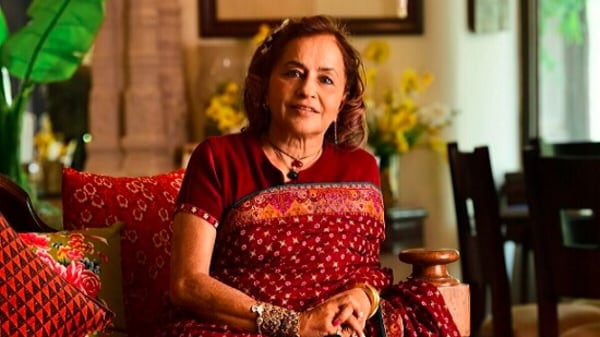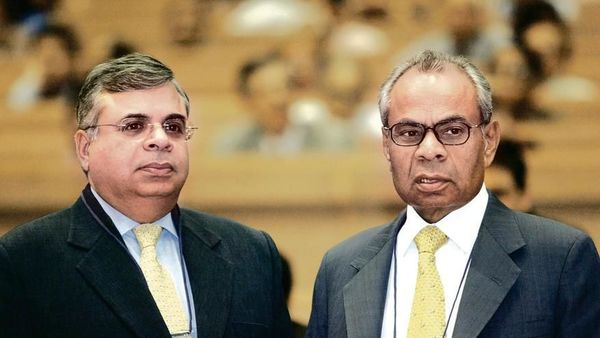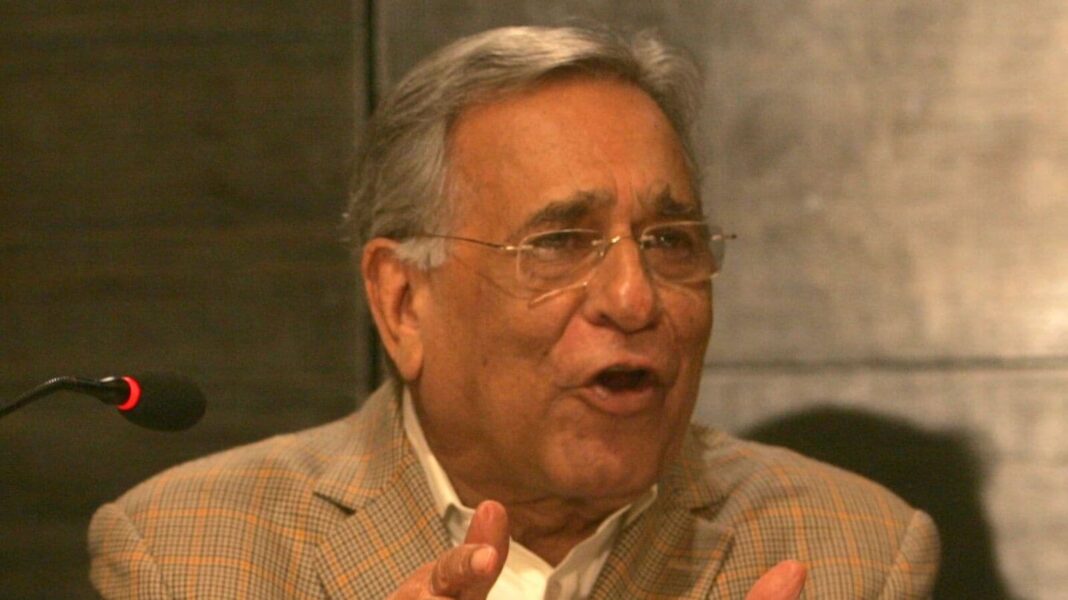




In Short:
In India, 97% of family businesses lack succession planning, causing many disputes, especially after a patriarch’s death. Conflicts often arise from unclear succession plans, differing visions, and control issues. Experts stress the need for robust governance structures and effective succession strategies. Legal frameworks govern these disputes, but mediation is preferred to litigation. Resolving conflicts quickly is vital for business stability and stakeholder trust.
Family Feuds: The Hidden Turmoil in Indian Business Legacies
In the vibrant landscape of Indian enterprise, family-run businesses form a substantial fraction, yet a shocking **97%** of them operate without solid family constitutions or succession plans, as per a 2018 report by **BAF Consultants**. A more recent survey from **PwC** in 2023 revealed that only **60%** of Indian family business leaders have taken steps to implement formal governance structures.
The publication, Mint, consulted experts to delve deeper into the root causes of these disputes and highlighted how refined succession planning and effective governance frameworks could steer clear of legal confrontations while preserving business stability.
What Triggers Family Feuds?
Family rifts within large corporations often arise from interconnected factors, with one of the most significant being unclear or non-existent succession planning. **Ruby Singh Ahuja**, a senior partner at **Karanjawala & Co**, noted, “The war of succession often lands in court when the new generation is ready to take over. The death of a patriarch can lead to intense disputes among heirs.” This was clearly illustrated in the **Oberoi** and **Chhabria** cases.
Financial disagreements can also ignite conflicts. Differing visions and management styles among family members often create divisions. As **Shaishavi Kadakia**, a partner at **Cyril Amarchand Mangaldas**, explained, “Conflicts can also occur if some members want to sell the business while others wish to retain it.” Performance discrepancies across various segments of the business can further complicate matters.
Control issues are just as critical. The struggle for business control, paired with vague succession plans, frequently propels family members into legal disputes, evident in the **KK Modi family** debate.

View Full Image
Personal relationships among family members can also increase tensions within businesses. **Nilanjan Paul**, a chartered accountant, observed, “Conflicts in family businesses are often driven by unmet personal needs rather than poor performance. They typically arise from unclear situations and miscommunication among the family, owners and management.” The existence of personal grudges or lifestyle differences only complicates resolution.
The Legal Framework Surrounding Family Disputes
In India, family disputes involving business assets fall under various statutory laws and judicial precedents. The rules on succession differ based on religious background. The **Hindu Succession Act, 1956**; **Parsi Succession Act, 1856**; and **Indian Succession Act, 1925** establish parameters for inheritance and asset division, proving vital during disputes over business assets.
The **Companies Act, 2013** governs corporate conduct, laying down essential rules regarding the relationship between directors and shareholders, creating a framework for resolving corporate disputes and ensuring governance even amidst family chaos.
Additionally, **SEBI’s** listing regulations aim to enhance transparency and planning in listed companies, requiring succession planning policies to assure smooth leadership transitions. They also expect disclosure of any family settlement agreements affecting management control, which promotes transparency.
Resolving Family Disputes in India
Indian courts generally prefer a hands-on approach to handle family disputes, often advocating mediation or arbitration over prolonged litigation. According to **Akshat Pande**, managing partner at **Alpha Partners**, “Courts and mediators typically facilitate private settlements to resolve conflicts amicably, aiming to preserve family relationships and minimize disruptions to business operations.”

View Full Image
A noteworthy case demonstrating this approach is **Cyrus Investments vs Tata Sons**, where the Supreme Court upheld the removal of **Cyrus Mistry** as chairman of **Tata Sons**, ruling that the decision was made in the company’s best interests without oppressing minority shareholders.
In 2005, brothers **Mukesh Ambani** and **Anil Ambani**, sons of the late **Dhirubhai Ambani**, divided their vast $20 billion empire among themselves. More recently, the **Murugappa family** reached an agreement in November 2023 to settle their disputes amicably after their patriarch **MV Murugappan’s** passing. Earlier this year, the **Godrej family**, owners of the century-old **Godrej Group**, amicably resolved their conflicts and restructured their operations after five years of discussions.
Preventing Family Feuds: Strategies for Stability
To circumvent and manage potential family disputes, experts propose implementing several strategies. First and foremost, establishing robust succession planning is key. Creating a detailed succession plan that includes drafting wills and trust structures can significantly reduce conflicts over control and inheritance. As **Ruby Singh Ahuja** advises, “Families should undertake robust estate and succession planning.”
It is also vital to incorporate effective governance structures. Crafting comprehensive governance frameworks—like family charters or constitutions—clearly outlines roles, principles, and processes. These documents should encompass policies regarding family employment, company entry and exit rules, and mechanisms for conflict resolution. **Shaishavi Kadakia** emphasizes, “A governance exercise should outline the values, principles and processes guiding the management of a family’s shared assets and businesses.”
Moreover, separating management from ownership can mitigate risks. Creating a clear distinction between family-led boards and business management paves the way for more professional oversight, reducing the chances of conflicts. As **Akshat Pande** puts it, “Separating management from family-led boards helps achieve longevity and minimizes the risk of disputes.”
For streamlined succession, experts suggest patriarchs should provide direct opportunities for the next generation or explore external successors. This nurturing often requires years of careful decision-making and mentorship. Engaging younger family members, particularly those belonging to **Gen Z**, is essential in successful succession planning. The rising significance of including daughters in succession plans—evident in firms like **Godrej** and **Abbott**—is also noteworthy.
The Impact of Family Disputes on Business
According to **Ketan Dalal**, managing director at **Katalyst Advisors**, disputes within family-run businesses may severely undermine relationships, damage reputations, and disrupt management, leading to financial instability and erosion of stakeholder trust. As he aptly states, “Family disputes are not just internal matters – they ripple through the entire business ecosystem, affecting every stakeholder involved.”
Promptly and effectively addressing these conflicts is crucial to maintaining stability within businesses and ensuring ongoing success. **Dalal** further notes, “Past incidents have shown that investors suffer during prolonged family feuds, as share prices fall and shareholder value diminishes. Ultimately, these disputes can tarnish a business’s reputation, leading to division into smaller, less effective units. Many family disputes have ended in court, leading to stringent regulations on asset management, with assets frozen during litigation, severely limiting exit opportunities for shareholders.”
The Status of Major Family Disputes in Courts
Kalyani Family Dispute: The focus of this dispute is the inheritance of assets from the late **Sulochana Kalyani**, encompassing multibillion-dollar stakes in companies such as **Bharat Forge**, **Kalyani Steel**, and **Automotive Axles**. Tensions heightened when **Baba Kalyani** denied transferring shares in **Hikal** to his sister **Sugandha Hiremath**.

View Full Image
In February, the executor of Sulochana’s will applied for probate of a 2012 will favoring Baba Kalyani. However, **Gaurishankar Kalyani**, his brother, contested this will in July, claiming it was the result of coercion and manipulation. He also referenced a later will from December 2022 that supposedly bestowed assets to him.
Following this, in August, **Viraj Kalyani**, Gaurishankar’s son, sought probate for the December will. A court session is set for **September 23** to deliberate on the legitimacy of both wills.
Oberoi Family Dispute: This strife is centered around the esteemed **Oberoi hotel empire**, focusing on conflicting wills of the late **Prithvi Raj Singh (PRS) Oberoi** who passed away in November 2023. He left two wills dated **March 20, 1992**, and **October 25, 2021**, along with a codicil from **August 27, 2022**.
**Anastasia Oberoi**, PRS Oberoi’s daughter from his second marriage, is challenging the validity of the older will, asserting that the most recent will and codicil should dictate asset distribution. Her step-siblings **Vikramjit Oberoi** and **Natasha Oberoi**, alongside cousin **Arjun Oberoi**, contest her claims, insisting the older document should prevail. **Vikramjit Oberoi**, the managing director and CEO of **EIH Ltd** (the Oberoi Group’s flagship company), asserts that shares in **Oberoi Hotels** were held in trust for himself and Arjun and should be allocated to them.
On **September 12**, the **Delhi High Court** granted an interim order favoring Anastasia Oberoi, halting the transfer of shares in **EIH Ltd, Oberoi Hotels**, and **Oberoi Properties** until the dispute is settled. The interim order aims to maintain status quo while the court scrutinizes evidence and arguments from both parties.
KK Modi Family Dispute: Following the death of patriarch **KK Modi**, a feud ignited among his widow **Bina Modi** and their sons **Lalit** and **Samir** over the distribution of **Modi Enterprises**, which spans sectors like tobacco, FMCG, and hospitality, with an estimated value of ₹**11,000 crore to ₹30,000 crore**.

View Full Image
Recent legal discussions have revolved around the division of assets, particularly within **Godfrey Phillips India**. **Bina Modi**, who continues to oversee the firm, was granted permission by the Delhi High Court to exercise her voting rights at the company’s annual general meeting on **September 6**.
This ruling came amid challenges to her leadership, with proxy advisory firms advocating for her removal as MD. The dispute traces back to **2014** when KK Modi’s family established a trust deed for equitable asset distribution. Since then, legal confrontations over family members’ exclusion from pivotal roles and asset management have persisted. The Delhi High Court is expected to revisit the case next month.
Chhabria Family Dispute: The Protracted **Finolex Cables** dispute involves legal struggles over share transfers and governance post the death of founder **Pralhad Chhabria**. Initially, he appointed his daughter **Aruna Katara**, son **Prakash Chhabria**, and nephew **Deepak Chhabria** as successive chairpersons of the **Pralhad Chhabria Trust**; however, this was altered prior to his passing. Pralhad transferred **80%** of his shares to his son, Prakash, and nominated him to the board, bypassing the 2012 trust deed.
On **August 28**, the **National Company Law Appellate Tribunal (NCLAT)** declined to overturn a decision made at the company’s **AGM in 2023** when shareholders voted against **Deepak Chhabria’s** reappointment.
Hinduja Family Dispute: This prominent legal contest involves the **Hinduja brothers**—**Srichand, Gopichand, Prakash,** and **Ashok**—competing for control over the **$18-billion Hinduja Group**. This complex conflict emerged from a family agreement made in **2014**, asserting, “Everything belongs to everyone.” **Vinoo**, Srichand’s daughter, has challenged this agreement as she endeavors to assert control over her father’s assets, further complicating matters due to the group’s diverse interests in banking, automotive, and energy sectors.

View Full Image
Singhania Family Dispute: This clash revolves around **Gautam Singhania’s** leadership of **Raymond Ltd**, driven by allegations from his father **Vijaypat Singhania** about financial mismanagement and control over a prime property in Mumbai.
Munjal Family Dispute: This ongoing controversy involves the descendants of the founders of the **Hero Group**, all vying for control over **Hero MotoCorp**.





